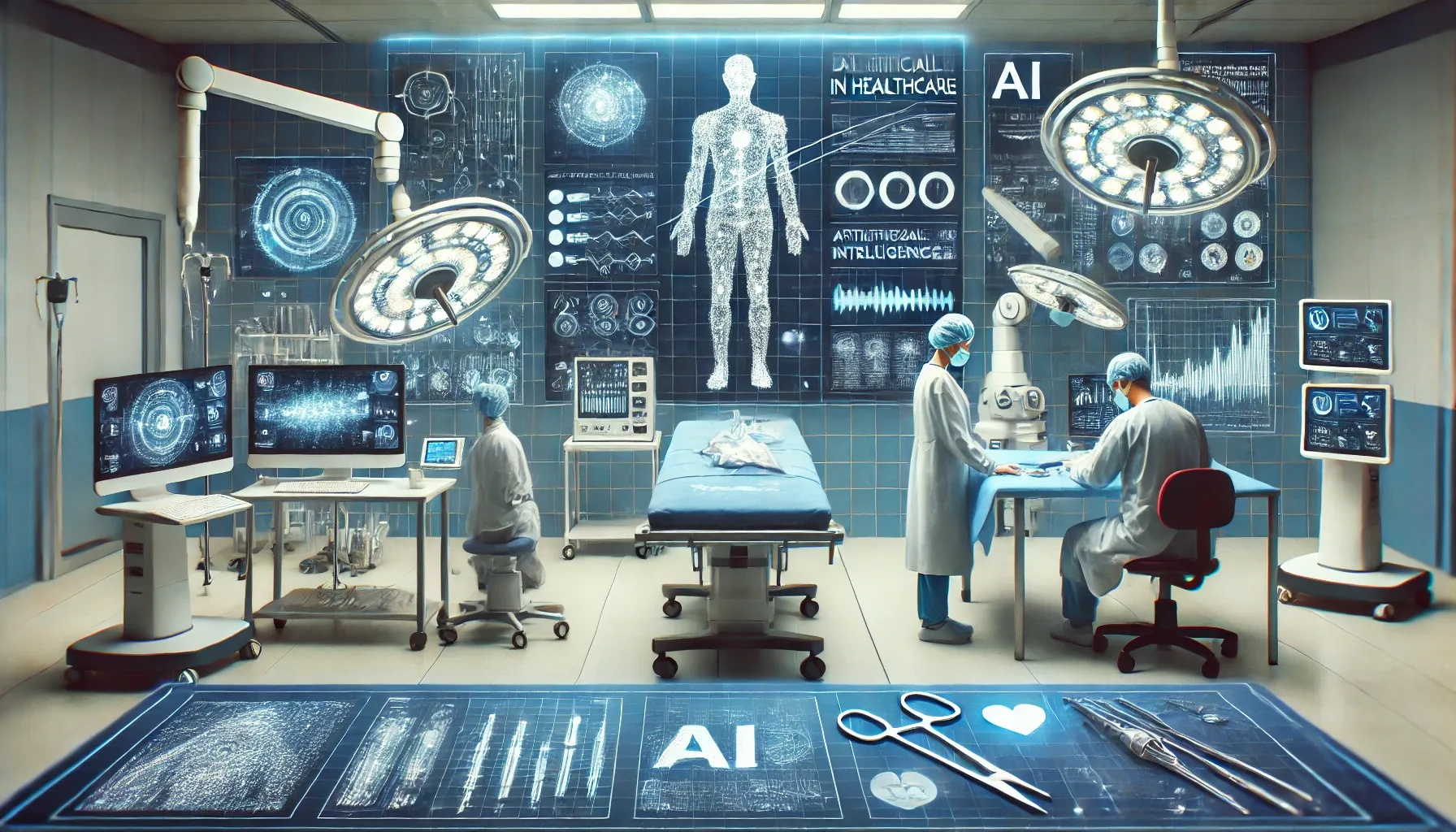🤖 Transformative Impact in Healthcare
Like many other sectors, artificial intelligence (AI) is transforming healthcare. AI and healthcare's junction has created fresh opportunities for enhancing patient care, streamlining diagnostics, and hastening medication development. This paper explores the transforming power of artificial intelligence in healthcare along with its many uses and amazing advantages it presents.
🩺 AI-Powered Diagnostics: Enhancing Accuracy and Speed
AI algorithms are proving to be invaluable in diagnostic processes, aiding in the interpretation of medical images and the identification of potential diseases. Human radiologists may miss subtle patterns and anomalies in medical images that machine learning models trained on large datasets can spot. This enhanced accuracy and speed can lead to earlier diagnosis and treatment, ultimately saving lives.
- A study published in Nature Medicine demonstrated the potential of AI to diagnose breast cancer from mammograms with greater accuracy than human radiologists.
- AI is also being used to diagnose skin cancer, diabetic retinopathy, and other diseases with impressive precision.
- These advances are transforming the field of diagnostics, making healthcare more accessible and efficient.
🔬 Accelerating Drug Discovery: Streamlining the Process
Developing new drugs is a complex and time-consuming process. AI is streamlining this process by identifying promising drug candidates, predicting their effectiveness, and optimizing their design. This can significantly reduce the time and cost involved in bringing new drugs to market, potentially benefiting millions of patients.
- In a recent study, researchers used AI to identify a potential drug for Alzheimer's disease in just a few weeks, a process that typically takes years.
- AI is also being used to repurpose existing drugs for new indications, potentially accelerating the development of treatments for various diseases.
🏥 Personalized Medicine: Tailoring Treatment to the Individual
AI is enabling the development of personalized medicine, where treatment plans are tailored to the individual's genetic makeup and specific needs. This can improve the effectiveness of treatment and reduce side effects. AI algorithms can analyze large datasets of patient information to identify patterns and predict individual responses to different treatments.
- A study published in The Lancet showed that AI-powered personalized medicine can improve the effectiveness of cancer treatment.
- AI is also being used to develop personalized treatment plans for diabetes, heart disease, and other chronic conditions.
👩⚕️ AI-Assisted Surgery: Enhancing Precision and Safety
AI is also making its mark in the operating room, assisting surgeons with greater precision and safety. Robotic surgical systems guided by AI algorithms can perform complex procedures with minimal invasiveness, reducing complications and recovery time for patients. AI can also help surgeons plan procedures and monitor patient progress during surgery.
- A study published in JAMA Surgery found that AI-assisted surgery can improve the accuracy of prostate cancer surgery.
- AI is also being used to assist in neurosurgery, orthopedic surgery, and other complex procedures.
📊 Optimizing Healthcare Operations: Improving Efficiency and Cost-Effectiveness
AI is not only transforming patient care but also optimizing healthcare operations. AI algorithms can analyze large datasets of patient information, hospital operations, and financial data to identify inefficiencies and improve resource allocation. This can lead to significant cost savings and improved patient outcomes.
- A study by Accenture estimated that AI could save the U.S. healthcare industry $150 billion annually by 2026.
- AI is being used to improve patient scheduling, reduce hospital readmissions, and optimize supply chain management.
🧠 The Future of AI in Healthcare: Endless Possibilities
The potential of AI in healthcare is vast and continues to expand. As AI algorithms become more sophisticated and datasets grow larger, we can expect even more groundbreaking applications in the years to come.
- AI is likely to play a crucial role in the development of new diagnostic tools, therapeutic interventions, and preventive measures.
- AI-powered wearable devices and remote monitoring systems could enable continuous health monitoring and early detection of diseases.
- AI could also facilitate the development of new drugs and vaccines, potentially addressing some of the most pressing global health challenges.
🚧 Challenges and Ethical Considerations
While the potential of AI in healthcare is undeniable, there are also challenges and ethical considerations that need to be addressed.
- Ensuring the accuracy and reliability of AI algorithms is crucial, as errors in diagnosis or treatment could have serious consequences.
- Data privacy and security are also major concerns, as healthcare data is highly sensitive.
- The potential impact of AI on the healthcare workforce needs to be carefully considered, as some jobs may become automated.
🤝 Collaboration is Key: The Way Forward
Addressing these challenges and realizing the full potential of AI in healthcare will require collaboration between various stakeholders, including healthcare professionals, AI researchers, policymakers, and patients. It is crucial to establish ethical guidelines and regulatory frameworks to ensure the responsible and equitable use of AI in healthcare.
Conclusion:
AI is poised to revolutionize healthcare, offering a plethora of opportunities to improve patient care, optimize diagnostics, and accelerate drug discovery. While challenges and ethical considerations remain, the potential benefits of AI in healthcare are undeniable. By embracing AI and addressing its challenges, we can create a future where healthcare is more accessible, efficient, and personalized than ever before.
Resources
- Nature Medicine: International evidence-based journal for healthcare professionals
- The Lancet: Leading medical journal
- JAMA Surgery: Leading journal for surgical research
- Accenture: Global professional services company
- World Health Organization: Global health organization
- U.S. Food and Drug Administration: Regulatory agency for food and drugs
- National Institutes of Health: U.S. medical research agency
- European Medicines Agency: Regulatory agency for medicines in Europe
- MIT Technology Review: Technology news and analysis
- Stanford Institute for Human-Centered Artificial Intelligence: Research institute focused on AI
